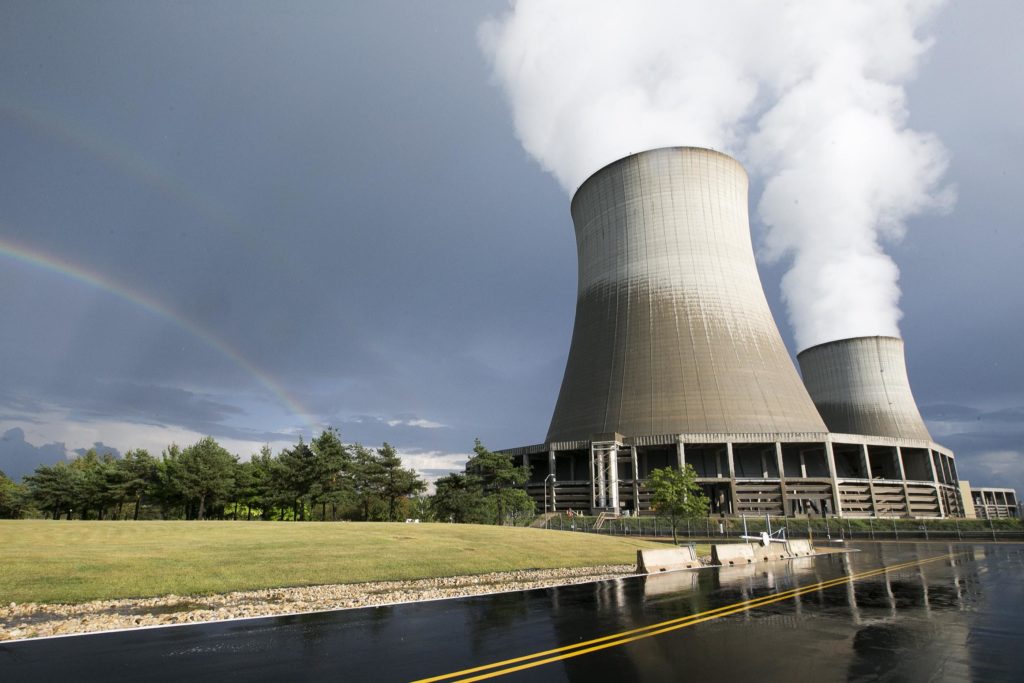
CHICAGO (AP) — Legislators returned to Springfield to take up a massive overhaul of energy policy that includes a bailout for nuclear plants and closing coal-fired plants, but negotiations stalled Tuesday.
Proposals on energy and an elected school board in Chicago are outstanding following a whirlwind legislative session that ended June 1 and resulted in a $42 billion budget.
Here’s a closer look at where things stand:
THE BACKGROUND
Gov. J.B. Pritzker wants to make Illinois a completely renewable-energy state by 2050 with tighter controls on utilities, following a bribery scandal involving electric company Commonwealth Edison. Last August, the first-term Democrat released an extensive plan with goals for addressing climate change, pollution and sustainable jobs.
Legislators left Springfield weeks ago without an agreement on a proposal seeking to close coal-fired power plants by 2035, including Prairie State Generating Station in southern Illinois. Some lawmakers and unions sought a exemption over concerns about jobs and communities that invested in Prairie State and would have to pay off bonds after its closure.
There’s also urgency because Exelon, parent of Illinois’ largest electric utility ComEd, has said that without a state bailout, it will shut down two nuclear plants later this year.
ON THE TABLE
The Senate was scheduled to take up the issue Tuesday, but negotiations didn’t produce a bill. The Senate adjourned after approving Pritzker’s proposed changes to the state budget that effective date errors.
The governor’s energy proposal — pitched as one that “protects consumers and the climate” — calls for nearly $700 million in state subsidies over five years to bail out three nuclear plants. It would also close coal plants by 2035 and natural gas-fired plants by 2045, according to an outline from Pritzker’s office.
Illinois would invest more in solar and wind energy, offering a $4,000 rebate for electric vehicle buyers and overhaul how consumer rates are set, according to the outline that shows average residential customers would pay nearly $3 more each month.
Pritzker’s also wants more ethics and accountability measures, including an investigation of how rates were used in connection with a ComEd bribery scandal that led to charges against multiple people and implicated former House Speaker Michael Madigan.
Senate President Don Harmon, a Democrat, said Tuesday evening that environmental activists and labor leaders were still far apart on negotiations, including a timeline to close plants and labor protections.
“We came up a little short today but we will get it done,” Harmon told reporters.
He said the Senate was ready to meet whenever there was an agreement. Options could include a paired down bill.
OPPONENTS AND SUPPORTERS
Business groups have rejected the energy proposal, saying it will hurt consumers and communities due to higher consumer bills. Unions’ concerns include job losses.
More than 50 lawmakers sent Pritzker a letter warning of “devastating consequences” for communities including the possibility that the closures could make the electric grid less reliable.
However, environmentalists say the plan would lead to reduced pollution and back the commitment to renewable energy.
Dozens of legislators supporting the plan issued a May statement saying utilities “have dictated energy policy” and that they wouldn’t support a bill that was “simply a handout for utilities.”
Pritzker’s office said his plan helps consumers and the environment.
“Illinois can and must lead on clean energy, and it must lead in the light of day — ethically, honestly, and toward the collective goal of empowering Illinoisans to lead the U.S. in transitioning to a clean energy economy,” his office said.
ELECTED SCHOOL BOARD
Also pending was a proposal to create a 21-member elected school board in Chicago starting in 2027. The House was scheduled to consider it Wednesday, along with the budget fix. The Senate has already approved the school board measure. Pritzker supports the idea.
The plan calls for phasing out current practice where Chicago’s mayor appoints board members. Starting in 2025, there would be 10 appointed members with others elected in November 2024. Two years later, all 21 members — 20 from specific districts plus one board president elected at large — would be chosen by voters and sworn in by January 2027.
Supporters, including the Chicago Teachers Union, say an elected board gives residents more say and better represents a diverse city. Mayor Lori Lightfoot has rejected it as “unwieldy.”
By SOPHIA TAREEN for the Associated Press
